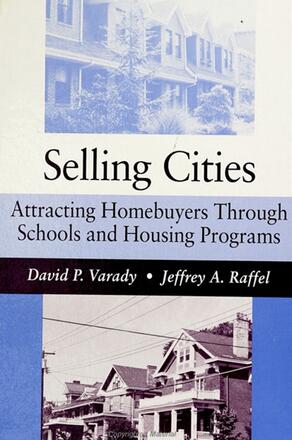
Selling Cities
Attracting Homebuyers Through Schools and Housing Programs
Alternative formats available from:
Shows that cities can be revitalized by attracting and retaining the middle class through schools and housing programs.
Description
Selling Cities takes the optimistic position that cities can be revitalized by attracting and retaining the middle class. The authors, experienced policymakers as well as academics, review previous work on city revitalization; report original research on homebuyers in the Cincinnati and Wilmington, Delaware metropolitan areas; and present case studies of middle-income schooling and housing policies in these and other metropolitan areas around the U. S. and Canada.
Selling Cities spans several disciplines--economics, sociology, demography, law, and planning--and is one of the first books to examine both housing and schooling programs. It includes numerous recommendations for city revitalization; an analysis of middle-income housing programs such as tax abatements and below-market-rate mortgages; analyses of metropolitan school desegregation in the Wilmington area and magnet schools in Cincinnati; and proposals of policies to enhance cities' attraction and retention of the middle class.
David P. Varady is Professor in the School of Planning at the University of Cincinnati and is the author of Neighborhood Upgrading: A Realistic Assessment, also published by SUNY Press. Jeffrey A. Raffel is Professor and Director of the Masters in Public Administration Program at the University of Delaware and is the author or coauthor of several books, including The Politics of School Desegregation: The Metropolitan Remedy in Delaware.
Reviews
"This book offers empirical insights to a critical urban policy issue: Can central cities attract middle-class homeowners? The analysis is thorough, the data interpretation is well balanced and non ideological, and the policy recommendations user-friendly. The argument that cities can do something about decline is an important contribution to the urban policy literature. " -- Kenneth Wong, University of Chicago
"A really thoughtful contribution to the policy debate. The topic is extremely significant, both as a matter for policy debate and as a subject for academic inquiry. "-- Robert K. Whelan, University of New Orleans